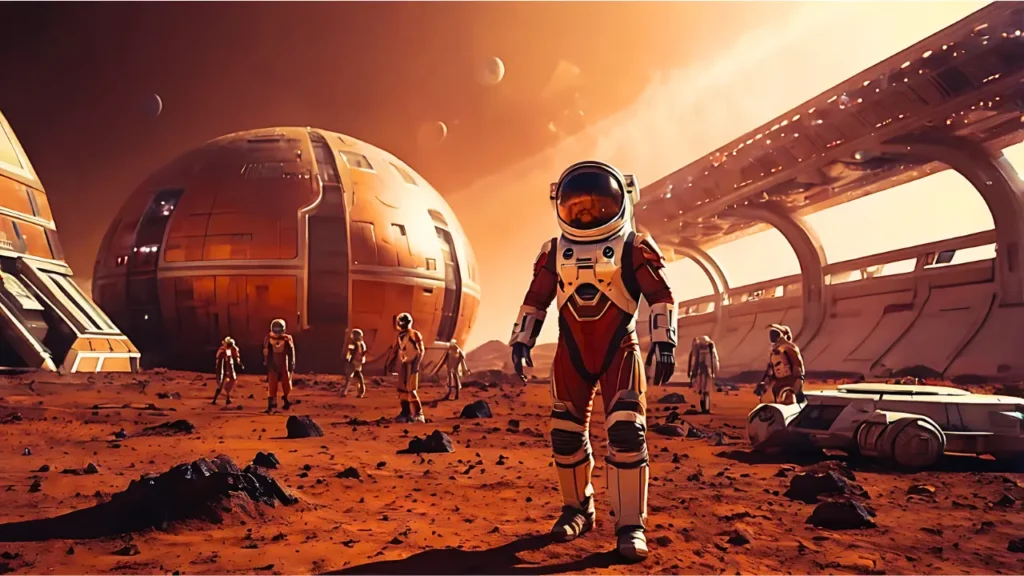As we contemplate the prospect of humanity expanding its reach beyond Earth, the idea of establishing colonies on Mars prompts profound reflections on what it means to be truly human. To inhabit the Red Planet with the same ease and naturalness as we do Earth, we may be compelled to transform into beings that are somewhat less “human.”
NASA aims to initiate manned missions to Mars by the 2030s, although visionaries like Bezos and Musk could potentially outpace them. The journey promises to be far from a pleasant or comfortable experience for the astronauts embarking on this mission. They will confront severe challenges, including intense radiation, microgravity that deteriorates bone structure, and other cumulative adverse effects on their bodies that will persist over several years.

According to NASA’s existing plans, even under the worst conditions, the initial pioneers should retain the physical capability to return to Earth. However, for those who will settle on Mars permanently, the situation becomes exceedingly complex. Experts suggest that to establish a lasting presence on Mars, we may need to fundamentally alter the genetic blueprint that defines what it means to be human.
Kennedy Lynch, an astrobiologist and geomicrobiologist at the Lunar and Planetary Institute in Houston, argues that if we aspire to flourish, prosper, and even create families on Mars, genetic engineering and other sophisticated technologies will be indispensable. Scientists have already begun experimenting with the genes of slow-moving animals that are renowned for their resilience in the vacuum of space, exploring the potential integration of these traits with the human genome. Remarkably, the genetically modified cells exhibited enhanced resistance to radiation—a breakthrough that could be pivotal for the mission.

NASA and other space agencies are actively exploring a range of strategies to safeguard the health of astronauts, including the development of specialized shields for spacecraft. Alongside these cutting-edge technologies, new pharmacological drugs are being created. Thus, scientists predict that within the next decade, we may witness the advent of DNA-altering treatments specifically designed to protect astronauts by modifying their genes.
Consider the possibility that our species’ evolution might hinge on gene-splicing, with no alternative to ensure our survival. Perhaps, after centuries of selective breeding, humanity will fully adapt to the harsh environment of Mars. Genetic engineering isn’t just about protecting astronauts and settlers; it could also unlock extraordinary advancements—though the notion of creating “super-soldiers“ might remain in the realm of science fiction.
Still, the idea of growing radiation-resistant crops like potatoes or cultivating luscious Martian tomatoes appears to be a crucial step before we can confidently claim another planet as our home.

These experimental innovations can be refined within laboratory settings, making it easier for future colonists to establish the right conditions for survival on an alien world—even if it means we may eventually appear somewhat alien ourselves.
So, if you were given the chance to incorporate any animal trait into your body, which would you choose? Cat ears, perhaps? Let’s explore this fascinating possibility!



